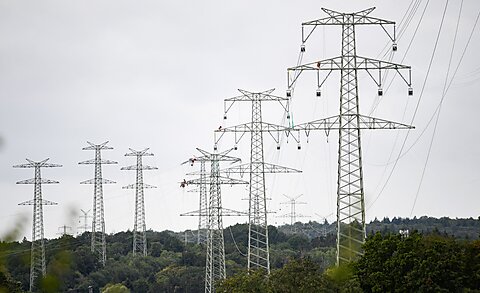The need for speed is more than just a cool line from the movie Top Gun (the original)—it’s the overwhelming focus of people in the electricity sector today. Secretary of Energy Chris Wright recognizes the need for speed and has responded with two initiatives: the “Speed to Power” request for information at the Department of Energy (DOE) and the “Interconnection of Large Loads” proposal submitted by DOE to the Federal Energy Regulatory Commission (FERC).
My frequent co-author, Glen Lyons, submitted comments to DOE, and I submitted comments to FERC, each supporting the secretary’s efforts to speed up the sector. Our responses call for federal policymakers to adopt Consumer Regulated Electricity (CRE), a bureaucracy-free approach that can bring speed to the electricity sector. It circumvents the frustrating status quo, much like Uber and Lyft did with the taxicab industry or FedEx with parcel services.
CRE is a state-level policy reform that would allow entrepreneurs and private investors to chase the lucrative prize of new large loads (think gigawatt-scale data centers). It’s a quintessentially American approach to improving an industry: instead of relying on government to figure it out, we lean on entrepreneurs. As Secretary Wright knows better than most, entrepreneurs brought us the shale revolution in oil and gas, ushering in a renaissance when experts thought the US was running out. Imagine what entrepreneurs could do in the electricity sector, where there has been precious little freedom or incentive to innovate.
The word “innovation” conjures up images of new technologies, including small modular nuclear reactors, batteries, and deep geothermal energy, among others. But breakthrough innovations can be simple, too. Uber and Lyft didn’t reinvent cars—they tapped into a supply of vehicles and drivers that could easily substitute for taxicabs and developed software to optimize their use. FedEx didn’t reinvent delivery trucks and airplanes—it started using them in a new way by bringing all packages to a central hub and then distributing them back out overnight. Shale pioneers didn’t necessarily invent new drilling technology. They used existing technology in new ways (paired with key insights on shale rock formations) in pursuit of known resources that were thought too expensive to produce.
Key to CRE is that it is off-grid, meaning it is not physically connected to the electricity grid that we all use daily. By being off-grid, there’s no need for state utility regulation. What does this then have to do with the DOE and FERC? By being off-grid, CRE is not part of the bulk power system. Common sense tells us this is true, but common sense doesn’t always shine through in the heavily regulated electricity sector. Therefore, our responses in the two dockets ask DOE and FERC to formally acknowledge that CRE operates outside of FERC jurisdiction, including the mandatory reliability standards created by the North American Electric Reliability Corporation (NERC) and enforced by FERC.
Some argue it’s dangerous to allow CRE to escape FERC and NERC regulation, but we disagree. First, building a “CRE utility” will be an expensive and daunting challenge. No sensible investor will support a developer that doesn’t value safety and reliability. Second, and more importantly, no sensible large consumer of power (e.g., a data center company) will agree to go off-grid and take supply from a developer that doesn’t value the same. CRE utilities might still use NERC standards, but at their option. Suppose they find better ideas, such as breakthrough innovations in safety and reliability that run counter to conventional wisdom and existing regulations. In that case, they can implement them immediately rather than waiting years for NERC, FERC, and regulated utilities to adopt them.
New FERC Chair Laura Swett said in her first open meeting on November 20 that her priority as chairman is to “ensure that our country can connect and power data centers as quickly and as durably as possible.” CRE can provide the speed that Secretary Wright and Chair Swett both seek. We ask that DOE and FERC endorse the concept and provide a much-needed early spark by formally recognizing that CRE utilities are not part of the bulk electric system and are not subject to the burdensome regulations that accompany it.
Advocates for Consumer Regulated Electricity Founder Glen Lyons contributed to this article.















